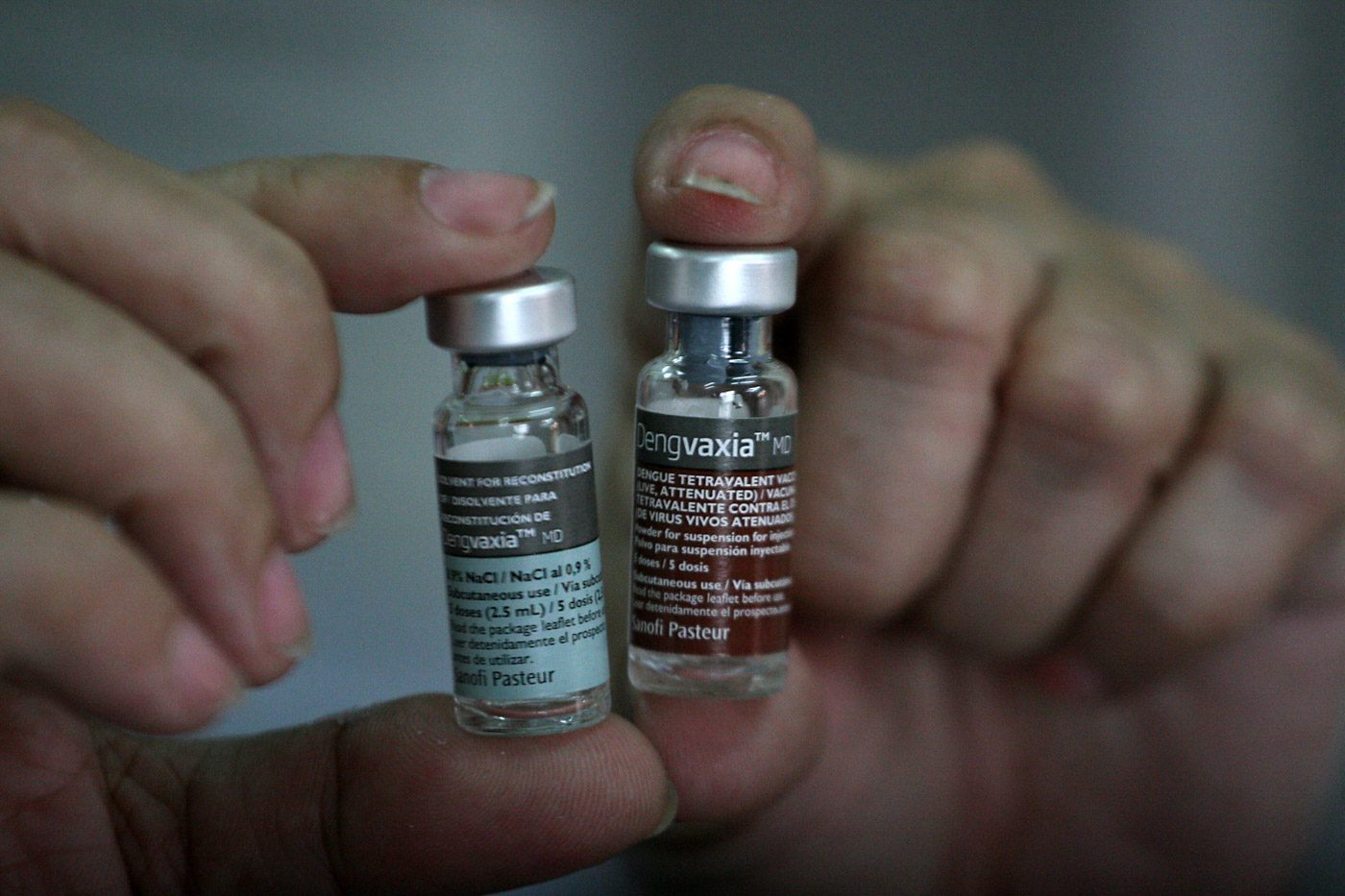SUMMARY
This is AI generated summarization, which may have errors. For context, always refer to the full article.

MANILA, Philippines – In a bid to allay the fears of the public regarding the controversial dengue vaccine, doctors this week said Sanofi Pasteur’s advisory on Dengvaxia was “miscommunicated.”
“‘Yung Sanofi, nang ilabas nila ‘yung report nila, ni-report nila on a scientific basis, sinabi nila, severe dengue (When Sanofi came out with their report, they reported it on a scientific basis, they said severe dengue),” Lulu Bravo, president of the Immunization Partners in Asia Pacific, said in a press conference on Wednesday, December 13.
She added: “E ano ba ang severe dengue? E ‘yun po sa atin, sa totoo lang, lagnat, bumaba ang platelet, nagkaroon ng sakit ng ulo, ‘yun po ang definition ng severe dengue (But what is severe dengue? The truth is, it’s fever, it’s when you have a low platelet count, when you have a headache, that’s the definition of severe dengue.)
Bravo, also the executive director of the Philippine Foundation for Vaccination, said people should not let this “miscommunication” go on because “people will live in fear.”
Instead of worrying, Bravo urged parents and even health practitioners to use this “opportunity” to raise awareness on dengue. (READ: TIMELINE: Dengue immunization program for public school students)
“Now that there’s awareness about dengue, let’s use this opportunity to inform mothers they should bring their children for a check-up if they have fever. Hydrate,” she said in a mix of English and Filipino.
On Wednesday, Bravo also claimed that 90% of children 9 years old and below already had dengue, but many parents are unaware because their children did not exhibit symptoms.
According to the United States’ Center for Disease Control and Prevention, “as many as one half of all dengue infected individuals are asymptomatic, that is, they have no clinical signs or symptoms of disease.”
Urgency
In March 2016 – days before the country started immunizing millions of students against dengue – former health secretary Janette Garin said the Department of Health (DOH) will welcome health competition to Sanofi’s Dengvaxia should there be another dengue vaccine in the next 4 to 5 years.
The DOH still pushed through with the school-based dengue immunization, however, because according to Garin, they won’t let more children die due to dengue when a safe dengue vaccine is already available in the country.
Asked about the practice in the medical community for new vaccines like Dengvaxia, Mario Panaligan of the Philippine Society for Microbiology and Infectious Diseases (PSMID) said the dengue vaccine was used not because it’s the first one but because there’s an urgency and need to use it.
Bravo said that while other dengue vaccines are also being developed, the next one may not come out in the next 5 to 10 years. In fact, Sanofi took more than 20 years to develop its own vaccine.
“Pero ito po ang isang hindi magandang scenario, na dahil sa nangyayari ngayon, e baka po natakot na ‘yung mga kumpanya na ganito pala ang nangyayari sa Pilipinas. Sino po ang kawawa? ‘Yung mga countries na may burden,” she explained.
(But this is one bad scenario, that because of what’s happening today, the companies might worry about what’s happening in the country. Who will suffer? The countries with the burden of dengue.)
As for DOH’s P3.5-billion budget used to purchase the dengue vaccine, Bravo said this is a matter of health economics.
“Minsan, may nagtanong sa akin, ‘Bakit P3 billion?’ Bakit, magkano dapat ang gastahin natin para maligtas ang buhay ng mga bata (Once, someone asked me, ‘Why P3 billion?’ Why? How much should we spend to save the lives of the children)?”
Health Secretary Francisco Duque III suspended his department’s dengue vaccination program on December 1, a day after Sanofi Pasteur revealed that Dengvaxia could cause more severe cases of dengue if administered to a person who had not been previously infected by the virus.
Panaligan said following the suspension, PSMID called for the continuous surveillance and monitoring of those who got vaccinated. – Rappler.com
Add a comment
How does this make you feel?
There are no comments yet. Add your comment to start the conversation.